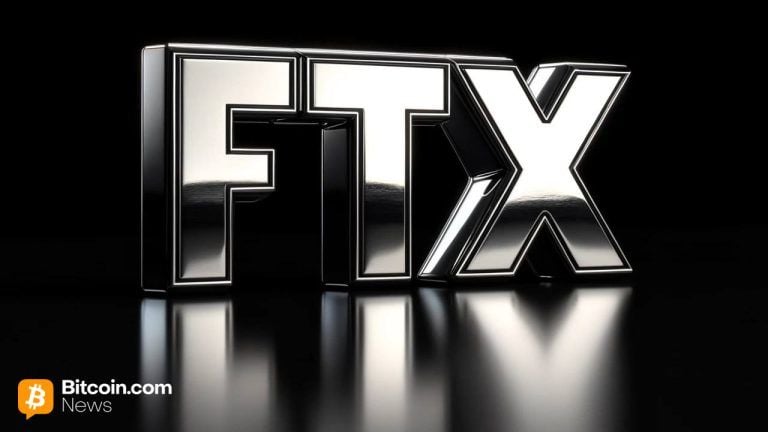Koinly Explains How The Ethereum Merge Could Affect Your Crypto Taxes

The Ethereum Merge is shaping up to be the biggest event in the crypto space in over five years, and that could mean some significant impacts on your crypto portfolio.
We know that sometime between September 10th and 20th, the Merge will take place, resulting in the Proof of Stake “Beacon Chain” merging with the current Proof of Work Ethereum chain.
While speculation surrounds whether Ethereum will fork and what may happen to DeFi protocols, stablecoins, NFTs and more, essential questions remain around the potential tax implications that Ethereum holders could incur.
So what’s happening, and what do you need to know? Crypto tax calculator Koinly is here to explain.
What is the Ethereum Merge?
The ultimate result of the Ethereum Merge will be the transition from Proof of Work (PoW) to Proof of Stake (PoS) as the consensus mechanism for the Ethereum blockchain. Ethereum developers have flagged this move for years, with work initially beginning as far back as 2016.
The current estimate is for the Merge to occur between September 13th and 15th, but it will ultimately depend on the Terminal Total Difficulty (TTD) of Ethereum. Currently, this appears to be around a block height of 15,540,293. The final upgrade to Ethereum clients (known as the Bellatrix upgrade) occurred on September 6th, with approximately 74% of Ethereum nodes “Merge ready”.
The Ethereum Foundation has stated that by moving to PoS, the blockchain will reduce its energy consumption by approximately 99.95% – potentially bringing interest from ESG investors who have been sidelined due to the high energy usage of blockchains.
After the Merge, Ethereum will join the likes of Binance Smart Chain (BNB), Cardano (ADA), and Solana (SOL) as some of the other cryptocurrencies that use PoS as their consensus mechanism.
Ethereum Merge Taxes
With the Merge likely to occur during the next few weeks in September, the timing puts it during the middle of the tax season for several countries (and towards the end of the financial year for others).
The timing will be important in the scenario that Ethereum ends up forking. For example, if the Ethereum network experiences a hard fork, some jurisdictions may treat this as “income”, similar to an airdrop. In this case, crypto investors would have to pay income tax on any additional tokens received.
Koinly’s Australian Head of Tax, Danny Talwar, explains, “One of the reasons there has been so much speculation surrounding the Merge is the tax implications if the network hard forks. In a scenario where a hard fork occurs, there may be a taxable event. However, this depends on where you live.”
For example, ETHW (representing the current Proof of Work Ethereum consensus mechanism) may continue to be supported by some miners following the Merge. In this scenario, all holders of Ethereum – which will have moved to the PoS chain, will also hold 1:1 ETH tokens on a PoW chain.
It’s important to remember that many platforms won’t officially support the PoW version of Ethereum. However, DeFi protocols, stablecoins and oracles will only recognise the PoS chain as the true version of Ethereum.
Circle has publicly stated there would be no value to USDC stablecoin tokens on an ETHW chain. Chainlink also said they would stop updating price oracles on ETHW, leading to most DeFi and other trading platforms breaking without reliable price feeds. Opensea followed suit, with NFTs (representing ownership on the blockchain) only officially recognised on the PoS version of ETH after the merge.
However, the tax implications of the Merge don’t all depend on whether or not the chain splits into a PoW and PoS version. With Ethereum moving from mining to staking, various countries will have different tax treatments.
Ethereum Staking vs Mining Taxes
Once Ethereum moves to a PoS consensus mechanism, anyone wanting to contribute to the network will be required to delegate their ETH via a staking pool – opening up the possibility for more crypto investors to be involved via staking rather than mining.
However, taxes will depend on where you live and the tax treatment of staking versus mining in your jurisdiction:
In the US, crypto mining and staking are subject to Income Tax. However, the tax treatment of staking has been controversial, with a recent court case against the IRS by two US taxpayers claiming tax on staking should be reviewed. Currently, staking rewards are presumed to be taxed as income upon receipt and subject to Capital Gains Tax upon disposal.
In Canada, the scale of your mining operations will affect the tax you may pay. Individuals and hobby miners currently don’t need to pay Income Tax. However, they must pay Capital Gains Tax (CGT) when they dispose of mining rewards. The CRA is yet to provide clarity on staking as income. However, staking under PoS is likely to be viewed as earnings meaning you will likely need to pay both Income Tax on receipt and CGT on disposal.
In Australia, the taxation of new crypto assets generated through mining depends on whether you’re a hobby miner or operate as a business or trader. While hobby mining won’t result in Income Tax, staking ETH for rewards or yield likely will. Again, CGT is due on any mining or staking rewards on disposal.
In the United Kingdom, Koinly’s UK Head of Tax, Tony Dhanjal, says, “ETH staking and mining are generally miscellaneous income and subject to Income Tax upon receipt and CGT on disposal. However, this depends on the degree of activity, organisation, risk and commerciality.”
So, with Ethereum moving to a PoS consensus mechanism, staking ETH will be far more accessible to the average crypto investor. However, there will likely be more instances where rewards and yield generated from staking will be seen as income liable for taxation.
Use Koinly to help simplify your crypto taxes after the Ethereum Merge
Considering the numerous scenarios that could happen following the Ethereum Merge, it will be more important than ever to keep track of where your ETH and other crypto holdings are.
Crypto taxes can be confusing. Fortunately, crypto tax calculator Koinly already has the tools you need to take control of your crypto portfolio and track your crypto taxes.
All you need to do is import your ETH transactions from any crypto wallets or exchanges into Koinly. You can do this via CSV file or API integration for most platforms and your public wallet address for wallets such as MetaMask. Once your data is imported, Koinly uses smart AI to tag different transactions automatically – including forks.
Koinly also supports NFTs, DeFi, airdrops, and more. With over 700+ integrations across the most popular exchanges, wallets and blockchains, Koinly can save you – and your accountant – tens of hours of manual calculations by pairing intuitive software with expert guidance from expert in-house tax consultants.
About Koinly: Koinly calculates your crypto taxes for you, catering to investors and traders at all levels. Whether it’s crypto, DeFi or NFTs, the platform helps you save valuable time by reconciling your holdings to generate a crypto tax report in minutes. Sign up today.
Disclaimer: Koinly is not a financial adviser. You should consider seeking independent legal, financial, taxation or other advice to check how this information relates to your unique circumstances.
This is a sponsored post. Learn how to reach our audience here. Read disclaimer below.




